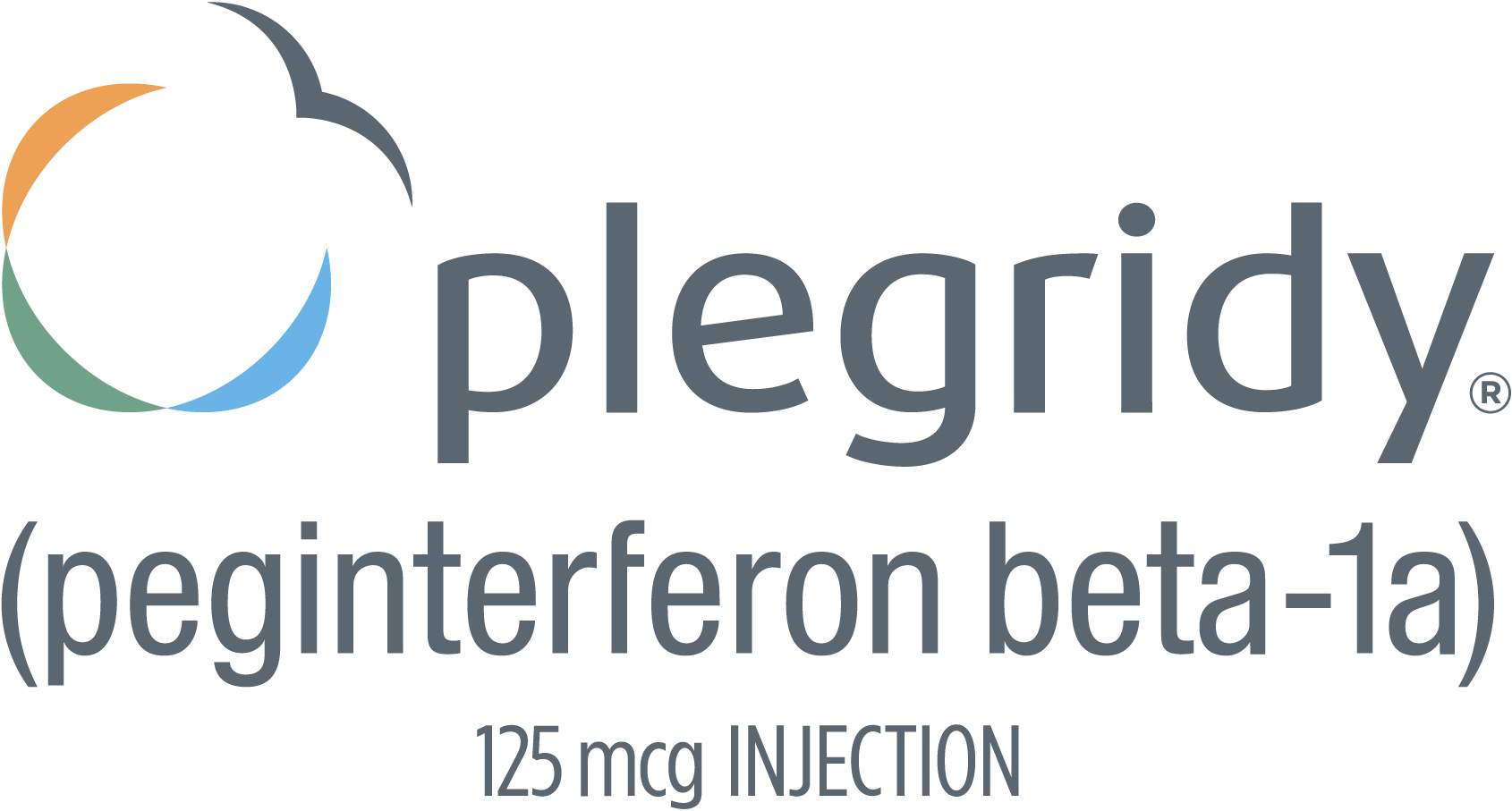Explore PLEGRIDY efficacy
In a clinical study, PLEGRIDY was shown to work in 3 key areas
Based on a 1-year study against placebo, people taking PLEGRIDY had fewer relapses, delayed disability progression, and had fewer brain lesions on magnetic resonance imaging (MRI).*
Helps reduce relapses
In a 1-year study, 512 people with relapsing MS taking PLEGRIDY had fewer relapses compared with 500 people in the placebo group. People taking PLEGRIDY experienced 0.26 relapses per year compared with 0.40 in the placebo group.
Helps slow physical disability progression
In the same 1-year study, people with relapsing MS taking PLEGRIDY had a 38% lower risk of disability progression as compared to placebo. 7% of people taking PLEGRIDY experienced disability progression compared with 11% of those taking placebo.
Helps reduce brain lesions on MRI*
3.6 T2 lesions with PLEGRIDY
vs
10.9 T2 lesions with placebo
T2 LESIONS: Lesions that show the long-term impact of inflammation on your brain.
0.2 Gd+ lesions with PLEGRIDY
vs
1.4 Gd+ lesions with placebo
GADOLINIUM-ENHANCED (Gd+) LESIONS: A dye containing gadolinium is used to show lesions that indicate active inflammation.
One way to monitor relapsing multiple sclerosis (MS) is by observing lesions, or areas of damage, in your brain. It’s important to monitor lesions because they can occur with or without any visible symptoms.
PLEGRIDY reduced the number of new or newly enlarging T2 lesions and Gd+ lesions compared with people taking placebo.†
*The link between brain lesions and the progression of relapsing MS has not been confirmed.
†Data measured at 48 weeks among 457 people with relapsing MS taking PLEGRIDY and 476 people in the placebo group.
More to explore with PLEGRIDY
Download a list of questions to help start a conversation with your healthcare provider about your relapsing MS treatment.
Download guide
If you’re considering PLEGRIDY, get a head start on the process by taking this form to your next visit. It includes step-by-step instructions for you and your healthcare provider.
Download Start Form
